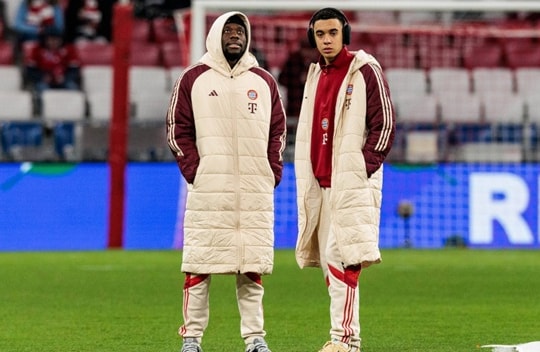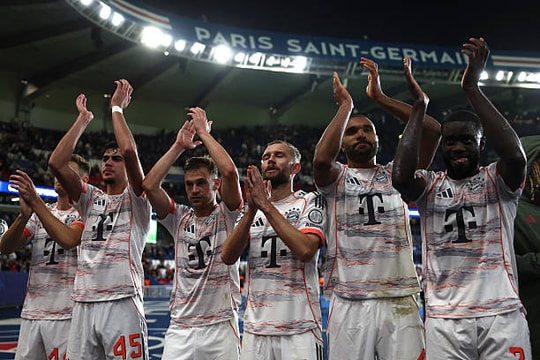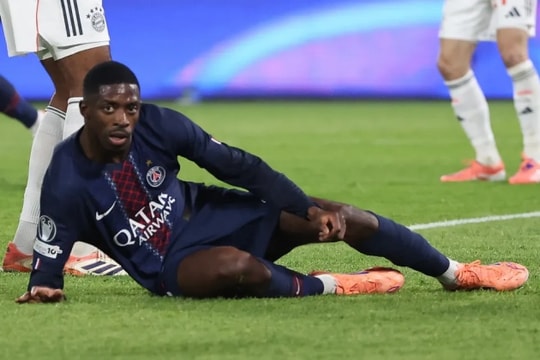Kane leads the way, Bayern beat PSG 2-1 with freedom of position
At Parc des Princes, Bayern played a "free orchestra": Kane dropped deep like a number 6, the backline exchanged flexibly, pressed in sync and won 2-1 despite being at a disadvantage in numbers.
Bayern Munich left the Parc des Princes with a 2-1 win over Paris Saint-Germain after a first half marked by a clear tactical identity: tightly organised but full of improvisation, a “symphony of positional freedom” that saw the home side constantly chasing interchanges. Harry Kane was the man who set the pace for that system. As Kompany said after the 2-1 win over Dortmund: “We like it when people ask themselves: Who is the striker, who is the attacking midfielder, who is the conductor for Bayern today?” That question rang out again in Paris.
Kane plays as a number 6 in a number 9 role
From the start of the match, Kane repeatedly dropped deep, sometimes almost level with the central defenders to receive the ball, then launched long passes past PSG's first pressing layer. A typical situation was when he received the ball right in front of his team's penalty area, opening up the right wing for Konrad Laimer - who advanced to occupy the space that usually belonged to Kane himself. Kompany's philosophy was clearly evident: not tied down by "position", only a role to rotate according to the situation.
At Bayern, Kane’s role as a “deep-lying director” is elevated to a collective structure. When the No. 9 striker drops, the surrounding links automatically move to fill the attacking corridors, helping Bayern both keep the ball safe and create breakthroughs vertically.
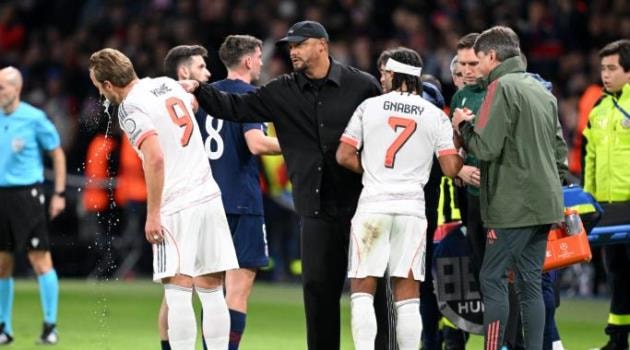
Flexible backline: change positions to create advantages
The touch chart shows that Dayot Upamecano, Josip Stanisic and Laimer all had wide areas of play. Upamecano did not just play as a centre-back; he often moved up the right flank to increase the numbers in midfield. From situations like this, Bayern created continuous pressure and opened up the goal to break the deadlock.
Stanisic, who started as a left-back, often moved inside, even getting close to PSG’s right-hand corner flag to press Marquinhos. He had the ball in the net but was ruled out by VAR for being offside after a Kane through ball. With Laimer, Bayern have a “mobile sweeper”: he can be a full-back when needed, an attacking winger when the team is high up the pitch, and then move in to balance the structure when Kane drops.
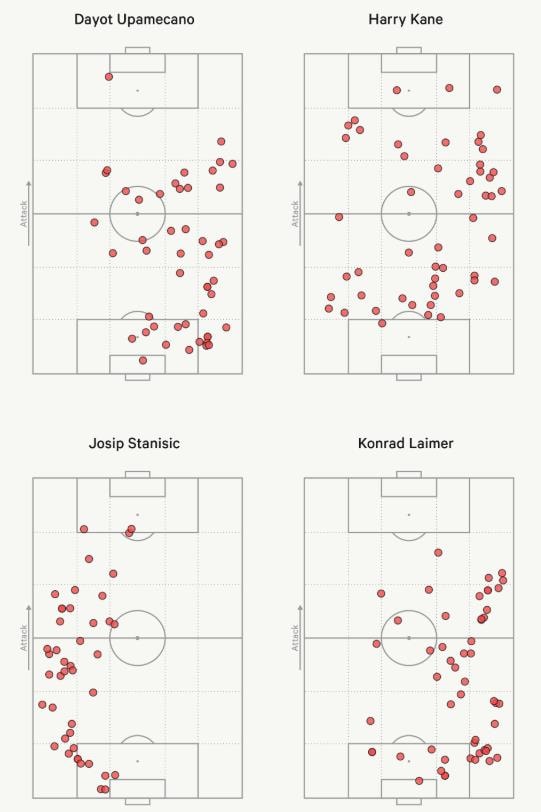
The Pace Changer
Bayern not only controlled the space but also synchronized their movements. When Kane dropped low, the attackers immediately penetrated the center to receive the breaking pass. When Upamecano advanced, Aleksandar Pavlovic dropped back to cover the two center-backs. And when Laimer rushed forward like a drill on the right wing, Stanisic moved in to maintain a balanced defense.
In the first 30 minutes, PSG had to chase the ball almost all the time, while Bayern constantly stretched the opponent's structure to create opportunities. The home team's goalkeeper made a number of important saves, preventing the score from being decided too soon. Even with the numerical disadvantage, Bayern still maintained their discipline and rhythm, and then secured a 2-1 victory.
Evolution under Kompany
Under Pep Guardiola, Bayern have been renowned for pressing and possession. Under Kompany, the team has evolved: more direct, with fewer touches, but without losing structure. “Positional freedom” is not chaos; it is freedom within a structure, where each ball triggers a sequence of deliberate movements.
With this philosophy ingrained in every line, Bayern can turn every player into a creator or a finisher. Center-backs can press like strikers, strikers can drop deep like playmakers, and full-backs can become the main attacking force. The ability to rotate positions at high intensity while maintaining discipline allows Bayern to create a rhythm that opponents find difficult to match.

Tactical impact of victory
The victory in Paris reinforced Kompany’s belief in his approach to the Champions League: a system that values initiative, with the willingness to switch positions to unlock the press, but remains compact enough in defensive transitions. And at the heart of that picture is Harry Kane – the man who “sets the tempo” for the whole symphony.

